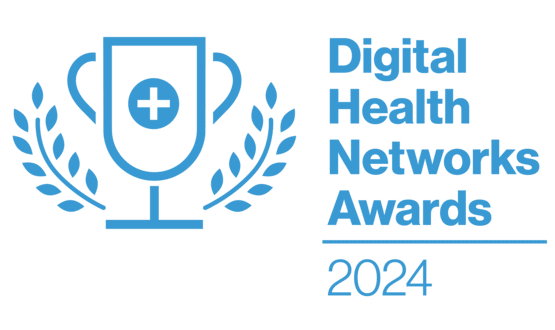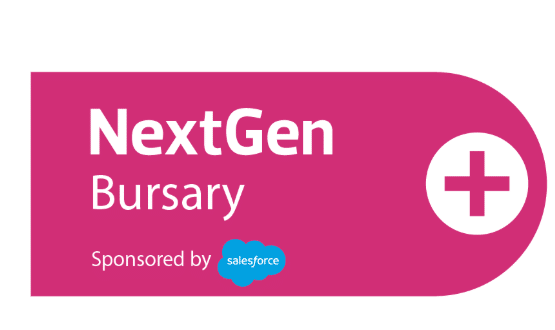Code it yourself?
- 14 November 2012

As a consultant radiologist at specialist cancer centre, Dr Rhidian Bramley gathers crucial information about patients.
It is the scans that he and his colleagues at The Christie NHS Foundation Trust perform that enable fellow clinicians to decide how best to treat a patient.
Yet, as Dr Bramley told delegates at the first CCIO Leaders Network Annual Conference, there used to be instances in which such information was not been seen or acted upon.
The consequences were serious: “There were incidents where this led to patient harm or death,” he told the event, which ran alongside EHI Live 2012 in Birmingham last week.
See a problem: solve it
As well as being a consultant radiologist, Dr Bramley is the trust’s chief clinical information officer. It was in this capacity that he sought to address the problem of results not being acknowledged by clinicians.
He felt certain it was a problem that could be easily addressed by an existing software solution. “Results acknowledgement should be simple to do, so we went to another site to see how someone else had done it,” Dr Bramley told delegates.
“We asked how long it took for clinicians to acknowledge results; but they weren’t actually doing it – the system didn’t support the workflow. Others sites didn’t know the percentage of clinicians that were acknowledging results.”
Such conversations continued for two years. Then, his organisation made the “revolutionary” decision to develop the software it needed in-house.
“Clinicians told us what they wanted and a colleague did the coding. He showed it to clinicians, they piloted it, word spread and more and more clinicians asked to use it. Within two months, we had 100% result acknowledgement across the trust.”
Staff at The Christie now use a number of information portals created in house – including a picture archiving and communications system portal built by Dr Bramley himself.
“We have had a big strategic shift and are now doing much more in house development,” he said.
“I’ve argued quite passionately within our organisation that there needs to be core capability to do some development. Setting up the development team is probably one of the most exciting things I’ve done as CCIO.”
Coding enthusiasts
It is also something that many other trusts are considering, and which was a source of much debate at the conference.
Should NHS organisations have in house development teams creating solutions that work for their own clinicians? And, at a more basic level, should those clinicians – and the CCIOs leading them – be able to code themselves?
The Christie is not the only trust to have decided that the answers to these questions are ‘yes’.
Dr Jonathan Richardson – clinical director of informatics at Northumberland, Tyne and Wear NHS Foundation Trust – told delegates that his organisation’s clinical dashboard app had been created by an in house team “probably at a fraction of the cost of it if we’d gone out to buy one.”
A similar story was told by Dr Jack Barker, CCIO at King’s College Hospital NHS Foundation Trust. The London trust has now created a number of applications, with Dr Barker leading development in some instances.
“I was hired to some extent to run the lung cancer service and I knew from the beginning we needed to collect data on quality and performance,” the consultant chest and general medicine physician told delegates.
“So I got into programming a bit – Access databases. Then we needed a web front end, so I worked with the IT team to learn how to do that and built a respiratory system that helps collect all the data needed.”
The trust’s clinical dashboard is now used every day as part of nursing handover, and most of it was built by Dr Barker with support from the trust’s IT team. Similarly, the organisation’s vital signs monitoring application was built by one of its clinicians.
Colin Sweeney, the ICT director at King’s, clearly explained the benefits of clinicians and his staff being practically involved in the development of informatics solutions. But he also told delegates of his worries about this approach.
“Everything that we develop we’ve got to support,” he pointed out. “So that does become a whole resource issue. That’s the sort of thing that keeps me awake at night – what happens if certain developers leave the trust?
“With the vital signs application, I was very concerned about it being used trust wide and its need to be supported by more than one man and his dog. So we have an external company backing us up as far as support is concerned.”
The world is changing
King’s, The Christie, and Northumberland, Tyne and Wear might all have found ways to embrace clinicians who code and in-house development teams who create applications. But others at the conference questioned whether this is something the NHS should be doing.
Dr Paul Altmann, CCIO at Oxford University Hospitals NHS Trust, told delegates the stated desire of Tim Kelsey, the new national director for patients and information, to create clinicians who can code is a misguided one.
“It’s completely irrelevant whether clinicians can or cannot code,” he argued. “What’s more relevant is that they ask not how – the coding bit – but why; start at the beginning and not get seduced by being able to code something.
“We need to know what it is we want to be able to achieve and then work with better qualified colleagues in industry or in house to develop it.”
It was a viewpoint shared by Dr Sajjad Yacoob, director of medical informatics at Children’s Hospital Los Angeles.
“I have no idea how to change a carburetor, but I drive a car,” he said. “You don’t have to be a programmer but you need to have some understanding of how to use those tools.”
Even those who did not feel that coding ability should be a requirement for clinicians and CCIOs acknowledged it may not remain that way for long, however.
“One of the real challenges is not just to do something about how it is now but to try to predict how it’s going to be,” argued Anne Cooper, national clinical lead for nursing. “We need to be able to envisage what it’s going to look like in ten years’ time.
“Would I like to see nurses who can code in the next decade? Yes. Do I think all nurses should be able to code? No.
"It is helpful to have deep dive [clinical staff] who can do the coding part but [for now] I don’t think everyone needs to be able to do it. I think leadership is much more important.”




